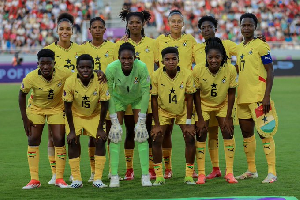The plan, which is slated to receive $40 million in funding from the CIF's Program for Scaling Up Renewable Energy in Low Income Countries (SREP), is structured around four key projects: renewable energy mini-grids and stand-alone solar PV systems; solar PV-based net metering with storage; utility-scale solar PV/wind power generation; and a technical assistance project (supported by the Sustainable Energy Fund for Africa – SEFA).
A significant number of Ghanaians are still without access to basic electricity, leading the government to focus build a series of energy policy targets, including providing universal access to electricity by 2016 and achieving a 10 per cent contribution of renewables in the electricity generation mix by 2020.
However, today its renewables sector faces challenges including inadequate regulatory, contractual and tariff frameworks, and limited interest from investors. The infusion of SREP funding, along with $53.5 million in support from the African Development Bank (AfDB) and financing from other development partners, will help the country scale up and leverage private and public financial resources to build the country's renewables sector and carry out the innovative set of projects.
“We are very pleased to receive this important endorsement from SREP,” stated the Deputy Minister of Power, John Jinapor, who led the country's delegation (Seth Mahu, Ghana SREP National Focal Person; and Henry Vanderpuye, SREP National Taskforce Member) for the presentation of the investment plan to the SREP Sub-Committee.
“The potential we see through this plan for scaling-up the country's renewable energy development is enormous, not only because of the funding to be provided, but because it will help increase investor confidence, reduce regulatory, institutional and contractual barriers, and provide needed technical support and capacity, and ultimately help Ghana's citizens to sustainably access climate-friendly energy,” he said.
The SREP investment plan is Ghana's second investment plan under the CIF. The country also has an active portfolio under the CIF's Forest Investment Program (FIP) – one of a handful of countries with plans in several sectors – and the SREP decision allows the country to exponentially expand its landscape of climate-smart development overall.
Business News of Sunday, 17 May 2015
Source: cpifinancial.net













